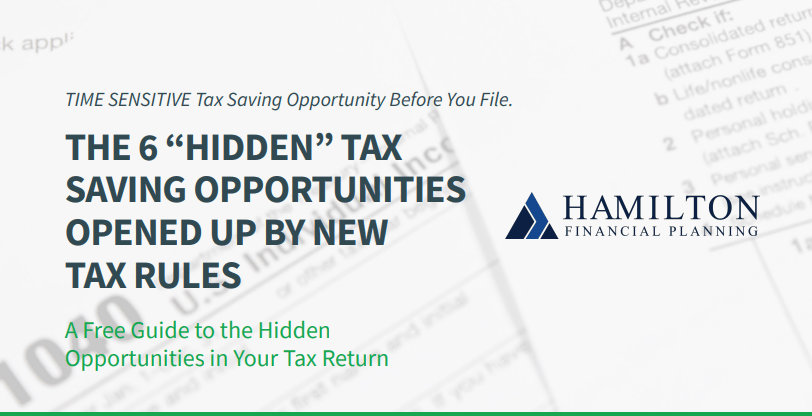
By Scott Hamilton
Beyond its philanthropic appeal, a donor-advised tax fund can wield significant financial benefits by potentially reducing your tax burden. As individuals seek more efficient ways to give back to their communities and causes close to their hearts, it’s crucial to explore how a donor-advised fund may also optimize your tax strategy.
Table of Contents
Charitable Giving Under the Tax Cuts and Jobs Act (TCJA)
If you’re charitably inclined, you’re probably used to itemizing your deductions. However, with the increased standard deduction and the limit on deductions for state and local taxes, you may not have received as much of a tax benefit for your giving in the past few years since the TCJA went into effect in 2017 as you have previously. Essentially, your benefit for giving to charity has now been reduced by more than 30%.
What Is a Donor-Advised Fund?
This is why donor-advised funds (DAF) are gaining popularity. A DAF acts as a philanthropic savings account. You put money into it for the purpose of giving to charity and let it sit there until you are ready to give. Unlike a savings account, though, all contributions are irrevocable. Once you put an asset into a DAF, you can’t take it back.
Other considerations:
- Tax break: Because you can’t take back your contributions, they are considered complete charitable gifts and immediately tax-deductible. You can take the tax deduction right away even if you wait several years to pass the money on to charity.
- Control: Though you don’t technically retain ownership when you put money or assets into a DAF, you are still able to guide, request, and recommend where the money goes. You get to name your DAF account, advisors, successors, and beneficiaries, and the holder of the DAF makes the ultimate decision on where the funds go.
- Recommendations: If you’re worried about letting control of your money go, know that most DAF holders will honor donor wishes as long as the recommendation complies with legal and tax requirements and grant-making policies.
Tax Benefits of a Donor-Advised Fund
DAFs offer several tax benefits. First, you get to take an immediate deduction when you contribute, even if the money has yet to be given to the charity of your choice. Any limit to the deduction you’re allowed to take depends on what kind of assets you contribute to the DAF.
Other strategies include:
- Publicly traded securities: These are a popular asset to contribute to a DAF because you can avoid paying long-term capital gains taxes and still deduct the fair market value of the securities (if held over a year). If you buy a security at $100 and put it in a DAF when it’s worth $200, you get to deduct $200 of charitable giving without paying taxes on the $100 in gains.
- Capital gains: Contributions of long-term capital gain property, like appreciated securities, can be deducted up to 30% of adjusted gross income (AGI). For all other cash contributions, you can deduct up to 60% of your AGI. If your contributions exceed your deductible limit, you can carry them forward to the next tax year.
- Tax-free: Contributions can be invested within the DAF to grow tax-free. Once assets are in a DAF, they belong to a charity and are therefore exempt from taxes.
How Are Donor-Advised Funds Used?
Let’s take a look at an example. The standard deduction for a married couple filing jointly is $27,700 in 2023. Assume that you have been donating $15,000 per year to charity. When combined with your property taxes and mortgage interest, you have total itemized deductions of $31,000 each year. That means you received a tax benefit for $5,100 of your giving in 2022 and $3,300 in 2023. Your total tax deductions over the two years was $62,000.
Now, instead imagine that you open a donor-advised fund in 2022 and contribute $30,000 to it to cover your charitable giving for 2022 and 2023. In 2022, you will have itemized deductions of $46,000 ($16,000 of mortgage interest and property tax combined with $30,000 contributed to a DAF). Then in 2023 you can simply take the standard deduction since you have no charitable giving to report. Your total deductions over the two years will be $73,700.
By utilizing a donor-advised fund, you end up with $11,700 more in deductions over the course of two years. If you are in the 24% tax bracket, that’s a tax savings of over $2,800. If you donate appreciated securities to the DAF, your tax savings will be even greater because you will not face capital gains tax on the disposal of the assets.
Are You Ready to Save Money With a Donor-Advised Fund?
Incorporating a donor-advised fund into your financial plan may help maximize your charitable contributions and minimize your tax liabilities. Remember, every financial situation is unique. Partnering with a qualified financial advisor and tax professional is important to help navigate the complexities of donor-advised funds effectively.
Hamilton Financial Planning welcomes the opportunity to partner with you on your financial journey. If you want to see if a DAF is the right fit for your goals, schedule a complimentary get-acquainted meeting online or reach out to us at 512-261-0808 or scott@hamiltonfinancialplanning.com.
About Scott
Scott Hamilton is founder and chief financial officer at Hamilton Financial Planning, a wealth management firm that specializes in providing comprehensive financial planning for retirees. With over 20 years of experience in the financial industry, and having completed over 250 financial plans for retirees across all industries, but mostly the oil and gas industry, Scott is passionate about providing his clients with the tools and insight they need to achieve their financial goals. He has a Bachelor of Business Administration in finance from Texas State University and an MBA in international finance from Pepperdine University. Scott has also been happily married to his wife, Gayle, for over 25 years. To learn more about Scott, connect with him on LinkedIn.

